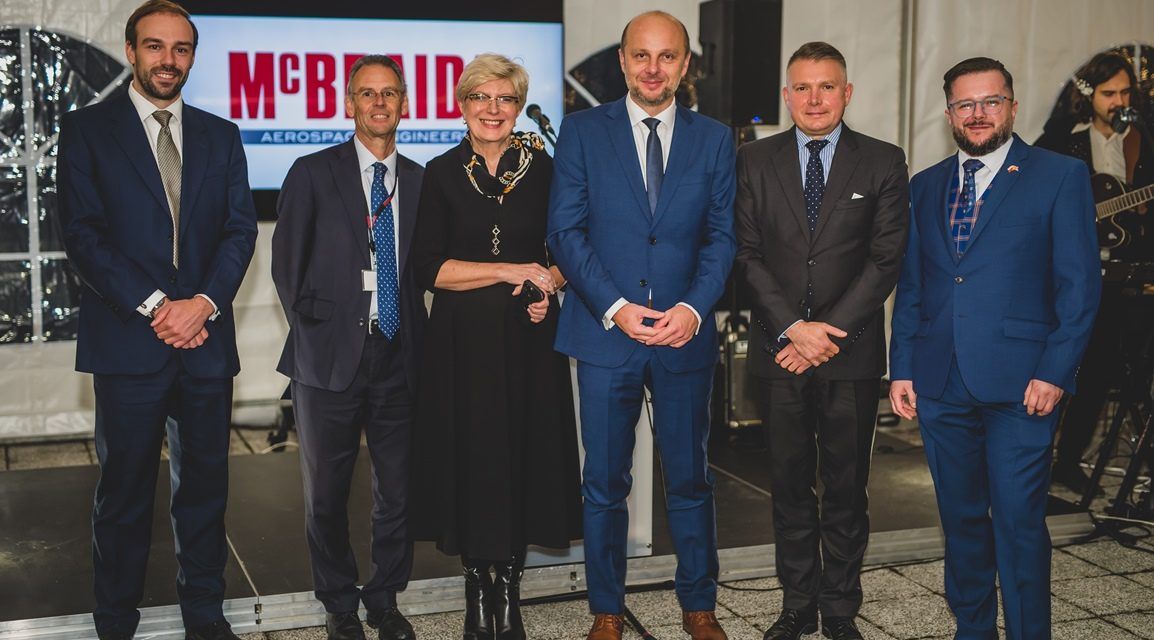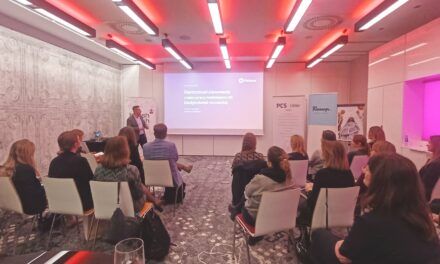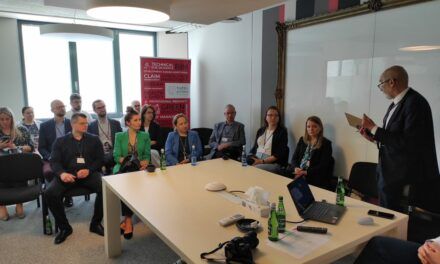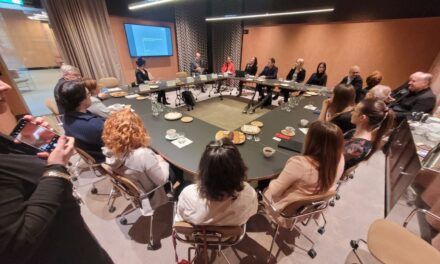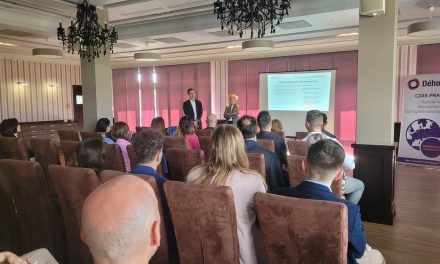Follow up on last year’s successful event in Rzeszów, the BPCC organised a conference focused on bilateral trade and investment between Britain and the Podkarpacie region. The event coincided with celebrations of the tenth anniversary of aerospace manufacturer McBraida setting up its Rzeszów plant, which took place on the evening on 26 October.
The family-owned firm from Bristol, which has been supplying the aviation industry with precision aero-engine parts since 1954, today employs 77 people in Rzeszów and is looking to triple the size of its plant in coming years. A great success story, despite Brexit, Covid and the full-scale Russian invasion of Ukraine, McBraida has significantly expanded its customer base since opening its factory in the heart of Poland’s Aerospace Valley. The event was opened by the mayor of Rzeszów, Konrad Fijołek, who stressed how important foreign investors and companies like McBraida were to the development of the city and region as a global hub for the industry. The BPCC’s CEO Paweł Siwecki highlighted the importance of advanced manufacturing to the Polish economy.
The conference took place the following morning in Rzeszów’s historic town hall. After the official welcome and introduction from Mr Fijołek and Mr Siwecki, there was a presentation from Rushmore Borough Council, Rzeszów’s twin local authority in the UK. Lee McQuade, the borough’s development director, introduced Rushmore, which includes the towns of Aldershot – home of the British Army, and Farnborough, the birthplace of British aviation. Mr McQuade highlighted the role of Farnborough as a leading centre for aerospace R&D, underlining the town’s attractiveness to investors from the sector. Michael Dembinski, the BPCC’s chief advisor, presented the development of British-Polish trade relationship since Poland joined the EU – and what has happened since the UK left the EU. The additional complications to trade caused by Brexit were discussed by Kamila Sanders, Grażyna Jaworska and Łukasz Pawełek from J. Dauman Group, which has had to significantly broaden the scope of the services it offers to Polish exporters and investors to overcome the new barriers to business. These include customs clearance facilities and assistance in reclaiming VAT and tariffs. The speakers mentioned a novel way Polish companies are entering the UK market – by acquiring British firms complete with staff, brand and clients. Bartosz Czuba from Savills gave an overview of the local warehouse market, which showed the tremendous demand for space, which had been booming through organic growth, but since the war in Ukraine began, the need for storing military and humanitarian aid has caused headaches for the logistics sector. New facilities are snapped up by tenants instantly, but development has slowed down because of a lack of suitable plots in the immediate environs of Rzeszów airport and the A4 motorway intersection.
After a networking coffee break, there were presentations from British investors in Rzeszów, who explained what drew them to the city, and what bottlenecks they were currently experiencing – a shortage of skilled employees being the top of the list. Marcin Gerlik, deputy general manager from Poeton, another family-owned aerospace company from the south-west of England, joined Mariusz Małachowski from McBraida, Adam Jarczyk, finance manager from Aero Gearbox International, a joint venture between Rolls-Royce and Safran. All three BPCC members’ investments are continuing to expand in Rzeszów, their growth driven by the rich ecosystem of aerospace companies in the region. Looking the other way, entrepreneur Danuta Rak, whose Rzeszów-based company has expanded into the UK, setting up as 3DR Design and Training Studio Ltd, a company involved in training 3D design and printing, in Barnsley, South Yorkshire. Ms Rak explained the importance of public-sector support in her firm’s decision to invest in this particular location.
Aneta Romaniec from Raben Group covered the second of the Brexit-related headaches for Polish exporters – logistics. She said that the number of trucks sent from Poland to the UK has fallen by about a half since before the pandemic and Brexit, and that prices have risen by about 18%. By having its own fleet of trucks with its own drivers, Raben can help Polish exporters overcome one of the biggest problems when wanting to send goods to the UK – the unwillingness of drivers to cross the English channel.
The presentations were followed by further networking – there was an evident thirst for knowledge about the UK market and how best to enter it among local businesses, while UK investors present in the Aerospace Valley had the chance to talk among each other as to how to optimise processes within their supply chains.
The BPCC would like to thank the City of Rzeszów for helping to bring together local businesses interested in forging trade and investment links between the UK and the region.






